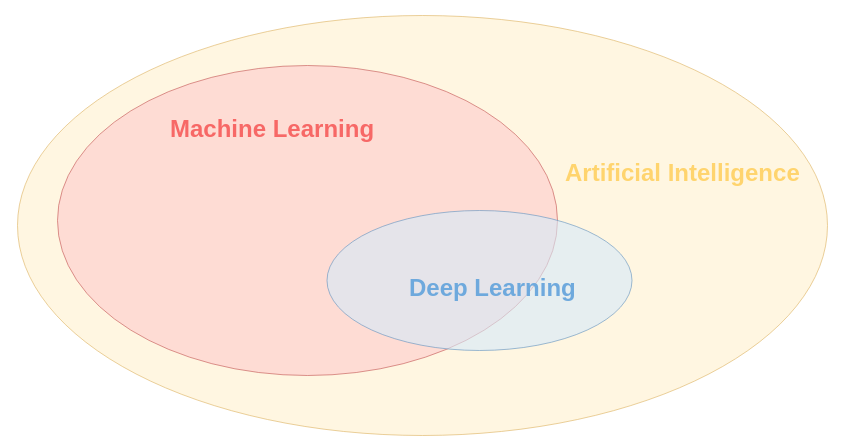
Using LLMs to Supercharge your Learning
Using LLMs to Supercharge your Learning
How AI is Supercharging my deep dive into Software Development
Like so many others after the ‘stay at home’ periods in 2020-2021, I found myself at a crossroads in my career, feeling unfulfilled and seeking new challenges. After much soul-searching, I decided to take the plunge and transition into the world of software development and data analysis. Little did I know that this journey would be turbulent, filled with frustrations and roadblocks – until I discovered the power of large language models (LLMs) like Claude AI.
The Struggle
I have been coding on and off for 30+ years, only as a hobby without ever producing anything of substance, however, when I first started this journey towards being a coder and working with data, I was inundated with tutorials. On the one hand, the sheer number of learning opportunities that are often free, is commendable, but on the other hand, it can make picking one, and building up from there, a little tricky.
I would diligently follow each step of a tutorial, rarely just copying code because I didn’t want my end product to be the same as the other 20m views of this YouTube tutorial, but the basic skeleton and structure of the thing I built was lifted entirely from a tutorial. The problem with this was that although generally what I built was probably not the same as someone elses output that followed the same tutorial, I didn’t really do enough critical thinking and so would ultimately find myself lost when it came time to build something else on my own. I was stuck in what’s known as “tutorial hell,” struggling to apply the concepts independently or adapt them to my specific needs.

Discovering LLMs
It was during this period of frustration that I stumbled upon LLMs like Claude AI. Initially, I was skeptical – how could a language model possibly assist me in such a technical endeavor? But as I began to interact with Claude, I quickly realized the vast potential it held.
(Note: It is important to understand that prompt engineering is more than just a library of prompts; it involves crafting the right context and scenarios to elicit high-quality responses from the AI.)
Practical Examples
With various LLM’s guidance, I found myself breaking free from the shackles of tutorial hell. Here are just a few examples of how LLMs like Claude or ChatGPT accelerated my productivity:
-
Building Basic Web Pages I have been building web-pages since the late 1990’s so I kind of knew this stuff and the bits I still don’t remember, I know enough of what I want to be able to find the code snippets or documentation to help me get something over the line. What I did (and do) struggle with was coming up with designs, I am definitiely not gifted in the making things look good department. So I’d waste all of this time looking through tutorials looking for designs I liked, I’d then build a design following someone elses brilliant mind before adding my own twists to it. So instead of spending hours scouring tutorials and piecing together HTML, CSS, and JavaScript code, I could simply describe the desired webpage to an LLM, and it would generate the necessary code for me. This saved me countless hours and allowed me to focus on building the underlying thing that I wanted to build rather than getting bogged down in design work.
-
Data Visualization As someone that has always loved data visualisations and data analysis, I wanted to up my game when it came to some ofthe visuals I might produce. I learned the basics in Python and Google Looker, etc, but this is where an LLM really sped up my ability to create an interesting visual as I could describe output, provide inputs, and the LLM would help me craft the code required to get that output. Examples include generating code for visuals like bar chart races etc.
Quantifying the Impact
The time savings and productivity gains I have experienced by leveraging LLMs have been truly staggering. Projects that might have taken me weeks to complete by following tutorials alone could now be accomplished in a fraction of the time. I estimate that my output increased tenfold, allowing me to explore more advanced concepts and build a more diverse portfolio.

Caveats and Limitations
While LLMs like Claude have been game-changers for my ability to produce things, it’s important to accept their limitations. The code and guidance they provide should be carefully reviewed. If I didn’t already have an idea of what I would expect from the LLM, then I may not recognise how far adrift the answer actually was.
Additionally, code snippets often just plain don’t work, in fact a recent study indicated that ChatGPT get’s coding output wrong as much as 52% of the time.
However, I would argue that these mistakes by the LLMs are another part of learning, looking at someone elses code and figuring out where they went wrong, or even challenging them to correct it with follow-up prompting does not only help speed up your outputs but potentially helps you understand the code at a different level.
Of course, relying solely on generated code without grasping the underlying concepts would be detrimental in the long run.
I wouldn’t suggest using an LLM to skip the basics of whatever it is you’re trying to learn, but once you have some basics, you can really take a big step forward by using an LLM to enhance your continued learning. However, on this point specifically, asking an LLM to give you an overview of a concept that is new to you is another game changing area, as long as you don’t leave it at reading the output from a single prompt and consider that concept now understood, that will defintitely not work in the long run.
Future Potential
As AI technology and LLMs continue to evolve, the possibilities for career changers and existing professionals in almost any industry are truly exciting. LLMs like Claude and ChatGPT are just the beginning – imagine having an AI assistant that can not only generate code but also provide personalised feedback, suggest optimisations and even offer suggested learning routes as it starts to understand what you’re weaknesses are. In my chosen career path, that would be like haveing my grandad as the senior dev in my team, someone that knows nearly everything, but is invested heavily in my future success, someone I could go ask for help, they’re going to push me a little, but do it in a way that doesn’t make you feel like I’m less than them. What a nice environment to work in.

Conclusion
My journey towards software development is not yet complete, I wouldn’t say it has been arduous, I’ve definitely faced bigger struggles in my life, but the advent of LLMs has been a game-changer.
By leveraging these powerful tools and embracing prompt engineering techniques, I feel like I have been able to break free from tutorial hell and accelerate my learning and development process exponentially.
If you find yourself in a similar position, I encourage you to explore the potential of LLMs while continuing to hone your skills and deepen your understanding of the underlying concepts.
The future of technology is exciting, and with the right tools and mindset, you can definitely be a part of shaping it.
